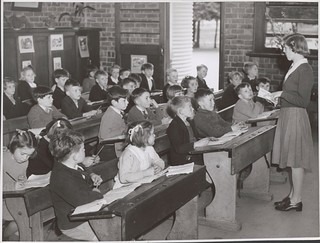Working in a professional manor is something that is far from limited to the teaching career. Consistently displaying respectable professional attributes, behaviour and good conduct are paramount aspects of many lines of work. This is effectively communicated when watching ‘One Born Every Minute’- a programme following specific stories of a hospitals delivery suite.
Throughout the entire programme the various professionals involved during the birth of a baby- including nurses, midwives and birth specialists- displayed a number of noticeable professional skills. For example, each member exhibited an obvious level of concern and care for their patients. They helped to keep the people in their care as relaxed and peaceful as possible by using calming language and maintaining a consistent qualified and well practiced demeanour. Through remaining relaxed and in control of the situation, particularly throughout difficult situations, they displayed great levels of expertise and experience for their given speciality. They showed skills in assessing each patient as an individual and what the best form of treatment would be for that situation and person, treating each individual with respect and in high esteem- exactly as one should. Each person dressed both respectably and appropriately whilst still managing to express individuality and personality- for example, by wearing a Hijab.
I felt that throughout the entire programme everyone involved displayed professionalism. Consequently, even when patients were going through an intensely distressing time, they were kept up to date and constantly aware of what was going on. I can only imagine this helped to make a truly horrible experience as easy as possible considering the beyond difficult circumstances. For me, this has really emphasised that having a strong level of knowledge and expertise is closely linked to behaving professionally.
Considering this, I feel that my attitude towards how different learning styles should be prioritised throughout a degree has changed. Where I still believe that practical based training should play a massive part of learning, I understand in a much clearer way that performing background reading and attending lectures is also vitally important. Without knowledge and a clear understanding of your profession, how do you expect to behave with integrity and in a way that demands respect?
Alongside the impressive behaviour of the professionals throughout the programme, I also particularly liked when the camera focused briefly on a man cleaning the corridor of the ward. I felt that this discreetly highlighted the need for all professionals to work together and successfully for operations to run smoothly.
Through watching this programme with a critical eye, I first and foremost feel that I have a renewed sense of respect for professionals. Throughout my studies, I want to remember how impressive it is to behave in a way that displays true proficiency and expertise. I want to be a teacher that not only works as an efficient educator, but as a role model for each of my pupils.


